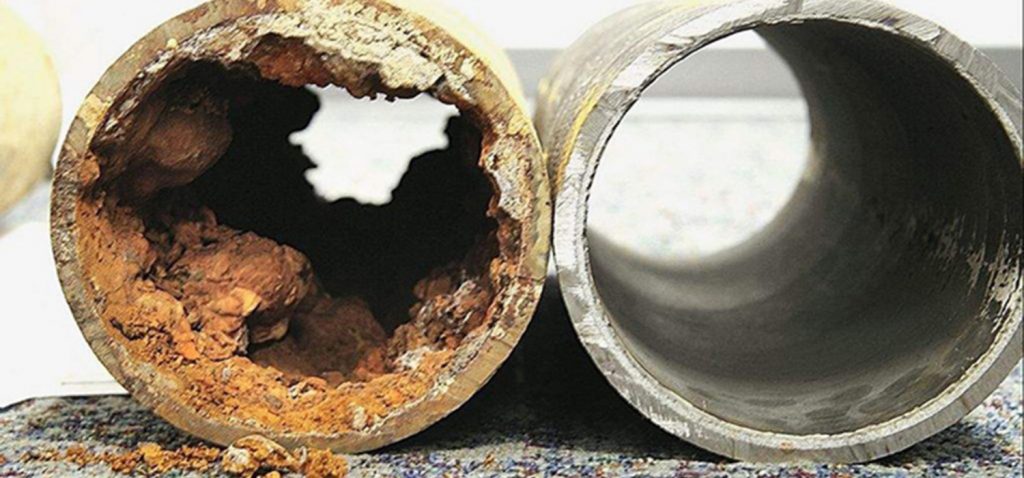Overview
Pre-treatment and chemical treatment are the two primary therapies which we use to prevent the scale formation, with the former being the more cost-effective choice. The chemical treatments are mainly to prevent hardness from accumulating on system surfaces.
Moreover, the pretreatment solutions are intending to remove hardness from your water before it enters your systems and causes scale.
Pre-treatment
While chemical treatments are intending to prevent hardness from accumulating on system surfaces, pretreatment solutions are using to remove hardness from your water before it enters your systems and causes scale. When magnesium and calcium ions come into contact with resin beads, they will be attracting to the beads and stick to them.
Sodium ions will be releasing into the water. As a result, they are replacing the poisonous magnesium and calcium ions with the safer sodium ions. The softener solution will begin to regenerate once the beads are completely covering the hard ions. This indicate that the magnesium and calcium will be effectively removing before the beads are supplying with the sodium ions.
Chemical
Chemical treatment is the most extensive treatment method for removing water scaling. Moreover, it is typically employing after hard water has entered the system or appliance. The goal of applying chemical treatments for scale management is to ensure that the scale does not accumulate on the system’s surface. During the chemical treatment procedure, there are three different components that we use mainly in:
- Threshold deterrents
- Polymers that change crystal growth
- Dispersants
Threshold deterrents
These compounds have the ability to chemically increase the number of ions in a solution. When we add low-level threshold inhibitors to the appliance or system water, the amount of hardness that the water can sustain increases dramatically; this actually means that the particles can exist in the water without producing scale deposits. It’s important to remember that inhibitors need to be replaced on a frequent basis. Threshold inhibitors will weaken after keeping concentrated hardness ions for an extended period of time.
To avoid scale deposits forming even after the threshold, inhibitors will be adding to the water. Make sure to blow off the previous threshold inhibitors and any hardness ions they are still retaining. This cycle will then be restarting by injecting additional inhibitors into the system.
Polymers that change crystal growth
These polymers alter the basic form of what a hardness scale becomes, making it less stable and more prone to disintegrate correctly. In order to prevent scale deposition on system surfaces, crystal growth modification polymers can be introduced to water. This is performed by changing the scale’s geometry, which reduces the likelihood of deposits accumulating. These modification polymers are perfect for boilers and cooling towers because they prevent scale accumulation on any heat transfer surfaces.
Dispersants
These compounds change the attraction forces that exist between scale particles, making it less probable for them to adhere together and form scale. The advantages of dispersants are analogous to the advantages of crystal growth modification polymers. As the hard particles in the water have differing charges, scale is able to form. Because these molecules attract one another, they stay together and form a solid scale. Dispersants added to boiler or cooling tower water will bind to any scale molecules present. When this happens, all of the molecules in the scale gain a positive charge, causing them to reject each other. It’s critical to keep track of the amount of scale that builds up in your water treatment system, regardless of the type of system you employ. Scale control strategies are simple to use and will help you avoid further damage to scale-damaged systems or appliances.
Bottom Line
A method of avoiding or minimizing scale development or corrosion is disclosed mainly by combining at least one scale-forming fluid. This can include at least one scaling compound with at least one anti-scale material selected from at least one scale-adsorbent agent. Scale formation on surfaces of liquid-related industrial equipment such as boilers and heat exchangers may be reduced or prevented using these methods.
You can also contact Jateen Trading Co. for more better solutions. With our qualified team and our service oriented approach we can help you achieve the greatest outcomes for your wastewater treatment facilities by assisting you with scaling. Do you find this article interesting? Then please visit the rest of the blogs as well. We’re confident you’ll find them exciting and valuable as well.


